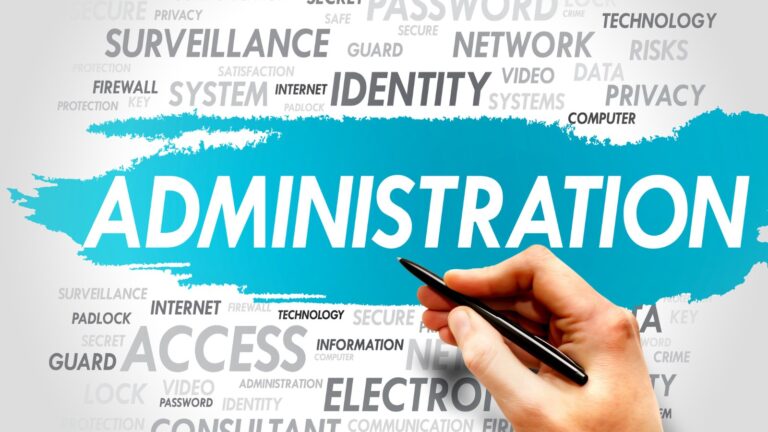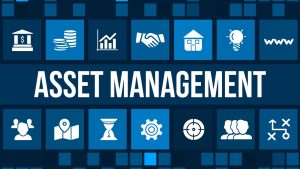What comes to your mind when you hear the term ‘Administration’? It can be ruling an organisation, making regulations, controlling people and properties, etc. But do you know that this is one thing that is like a sharp blade? As excellent administration can make an organisation grow unlimitedly, unplanned administration can pull down the whole business to zero. That is why the ruling parties of the organisation need to have a thorough understanding of this concept.
This article will act as a comprehensive guide that gives you a good understanding of the ‘Administration’. Here, we are going to cover everything from the definition of administration to types and key functions.
The Definition of Administration

First, let us define the exact meaning of this. Administration refers to the process of managing and organising the activities, resources, and responsibilities within an organisation or system to achieve specific goals and objectives efficiently. It includes many different activities, such as organising, selecting, and managing everyday operations. Administrators, including managers and executives, are essential to the establishment of organisational policy, resource allocation, and seamless operation.
Financial management, human resource management, record-keeping, and communication are some of the major administrative tasks that you will come across. In addition, maintaining order, fostering productivity, and encouraging growth in the public and commercial sectors all depend on one principle. That is ‘effective administration’.
The Main Categories of Administration

Public Administration
Public administration is about managing resources to achieve common goals. It focuses on carrying out government policies, providing public services, and regulating community matters. In democratic systems, it is crucial to make sure public money is used wisely to meet people’s needs.
Public administration covers a wide range of areas like police, healthcare, schools, helping people in need, and protecting the environment. It also involves working with different groups like elected leaders, interest organisations, and regular folks to create a united and responsive government. When it comes to administration, this can be the most challenging task among the rest. Human rights, laws & regulations, etc. need to be considered in this type of administration.
Private Administration
It is the administration and synchronisation of resources in privately held enterprises, including corporations, small firms, and non-governmental organisations. In order to maximise profits and accomplish organisational objectives, it includes resource allocation, policy execution, and operations management.
The primary characteristic of private administration is its emphasis on profit maximisation. This kind of administration is concentrated on raising money and boosting profits, as opposed to public administration, which is concerned with providing public services. Another uniqueness about this is that private administrators are specifically required to possess a high level of expertise in disciplines like marketing, operations management, and financial management.
Nonprofit Administration
Nonprofit administration involves the management and coordination of resources within organisations driven by social or public objectives, rather than profit motives. These organisations range from charities, foundations, advocacy groups, and religious entities. The significance of nonprofit administration lies in its capacity to ensure these entities effectively fulfil their missions and serve their communities. The sector engages in diverse activities, ranging from delivering social services and advocating for social justice to advancing public education and promoting the rights.
When it comes to nonprofit administrators, they must possess in-depth knowledge of their organisation’s unique needs and challenges. They are required to collaborate closely with stakeholders to craft effective strategies for accomplishing their objectives. This act plays a pivotal role in sustaining the development of the whole industry.
Government Administration
It is a kind of resource management and coordination within all levels of federal, state, and municipal government departments and organisations. It involves carrying out procedures, controlling spending, and managing operations in a way that improves overall well-being and advances governmental goals.
Accountability, openness, and public service are among the guiding principles of government administration. Government officials must be open in their decision-making and accountable to those whom they serve. Also, they need to make sure that services and programs offered by the government are done in an approach that advances both the public well-being and the objectives of the government.
Corporate Administration
Corporate administration, also known as corporate management, involves efficiently running a profitable company. It means making sure the company’s day-to-day operations go smoothly and its goals are met. Corporate administrators have important tasks like creating and following company rules, managing money, and making smart decisions to make the company successful.
Unlike government or nonprofit work, corporate administration’s main goal is to make a profit for the people who own the company. Corporate administrators must balance the needs of different groups like customers, employees, and owners while also making sure the company stays financially strong for the long term. This balancing act is at the heart of corporate administration for sure.
Educational Administration
This is one of the administration types that directly impact a country’s future as it is the base of all administrations. This is a type that involves skillfully managing resources in schools, colleges, and universities. It makes a clear path to keeping a close eye on daily school activities and achieving specific goals. Educational administrators have important jobs like creating rules, handling money wisely, and making smart choices to improve education and fulfil the school’s mission.
Their tasks also include managing money, taking care of school staff, and planning for the future. Educational administrators must make sure the school follows the rules and acts ethically. As it is visible, educational administration is all about making sure students get a great education and that schools run smoothly without interruptions.
Healthcare Administration
This is a type of administration that is completely different from those we mentioned above. Healthcare administration is efficiently running healthcare places like hospitals, clinics, and long-term care homes in a country. It is all about making sure everything in these places works well every day and that they achieve their goals.
Healthcare authorities have important responsibilities like making rules, handling money, and making smart choices to improve patient care and results. Their main concern is to make sure patients get excellent care that is safe and effective. They also need to make sure the healthcare place follows the rules and acts ethically. So as you can witness, healthcare administration is all about giving top-notch, safe, and ethical healthcare to the community. This type of administration’s value was highly visible during the COVID-19 period.
Key Functions of Administration

Planning
This is a vital part of administration, acting like a roadmap for organisations to achieve their goals. It involves carefully setting objectives and figuring out how to reach them, helping administrators make smart decisions. With good planning, administrators can spot potential problems, use resources wisely, and lower risks.
It also helps different parts of an organisation work together smoothly, keeps everyone clear on what they are doing, and allows for adapting to changes. Planning sets priorities, makes the best use of time and resources, and ensures that an organisation’s mission and values stay on track.
Organising
This is setting things up in a thoughtful way so that a group or organisation can achieve its goals. This involves figuring out who does what, making sure people work well together, and using resources wisely.
Administrators use organising to create a work environment where everyone can be productive and efficient. It is like building a framework that helps people collaborate effectively and adapt to changes. By defining roles and responsibilities and setting up clear ways of doing things, organising provides a clear path for reaching an organisation’s goals.
Handling Resources
This is known as a key function in administration which is looking after all the things an organisation needs to work well. Administrators have to handle different types of resources, like money, people, buildings, and information.
They need to budget and plan to make sure the organisation can keep running smoothly. They also take care of hiring and training a skilled team, managing places and equipment, and keeping information organised.
Directing
It is where the authorities guide and motivate their teams to reach the organisation’s goals. Administrators in this role give clear instructions, set expectations, and make sure everyone knows what to do.
They lead and inspire employees, creating a positive work environment and helping people work together. Directing also involves making decisions, solving problems, and using resources wisely to get things done efficiently.
Controlling
As you see, the authorities must keep a close eye on what’s happening in their organisation to make sure it goes according to plan. They gather information, set goals, and compare what’s happening with what they expect.
If things are not on track, they make changes to get back on course. It is visible that controlling covers various areas like managing money, making sure things are done well, and following rules. it is important because it helps organisations run smoothly and stay accountable.
Budgeting
This function helps the administrators to plan and manage their money carefully to support their organisation’s goals. They look at how much money is coming in and going out, setting aside funds for things like day-to-day operations, special projects, and investments.
This way they can make sure the most important things get enough money. Budgeting helps them prepare for any financial challenges and make sure everything runs smoothly. It also ensures that they handle money responsibly and transparently.
From Better Administration to Achieving Business Success

Since you have come across the whole article, you understand how important it is to have an outstanding administration for any country or organisation. The power of administration can not be limited to a particular industry or field as administration is not an option, it is a necessity. Imagine what would happen when there is no administration in an organisation for example! Employees will not be monitored and the business success will become a mere dream. So, that is the strength of ‘Administration’.






